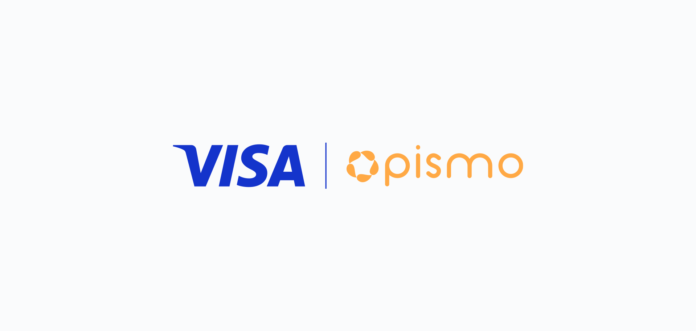Visa has acquired Brazilian payments infrastructure startup Pismo for $XNUMX billion in what is likely to be one of the largest fintech M&A deals to happen this year so far.
Founded in 2016 by Juliana Motta (CPO), Ricardo Josua (CEO), Daniela Binatti (CTO) and Marcelo Parise (VP of engineering), based in São Paulo Writing has amassed a list of big-name clients, including Citi, Itaú (one of Brazil's largest banks), Revolut, N26, Nubank and Cora. The startup processes nearly 50.000 billion API calls, $40.000 billion in transaction volumes annually, and manages nearly 80 million accounts and more than 40 million cards issued.
In the context of the explosive growth that Pismo has experienced, at the beginning of 2021, it was doing less than a billion dollars a month in transaction volume, according to Josua and had ended 2020 with less than 10 million accounts in total.
Over time, Pismo has expanded outside its home country and now also operates in several Latin American countries, including Mexico and Chile, as well as the US and Europe. The startup also has some clients in India, Southeast Asia and Australia.
Pismo’s cloud-native centralized finance and issuer processing platform aims to provide banks, fintechs and other financial institutions with “flexibility and agility.” That is the objective that he conveyed to the market when he raised $108 million in funds from the Serie B in October 2021. It offers services such as allowing clients to launch products for cards and payments, digital banking, digital wallets and marketplaces. Pismo also claims that financial institutions “take charge of your core data and use it intelligently” if required.
Visa argued that by acquiring Pismo, it will "position itself to provide core banking and issuer processing capabilities across debit, prepaid, credit and merchant cards to customers through cloud-native APIs." The startup's platform will also allow Visa to provide support and connectivity for emerging payment schemes, such as Pix in Brazil, and for clients of financial institutions.
“Through the acquisition of Pismo, Visa can better serve our financial institution and fintech clients with more differentiated issuer solutions they can offer their customers,” said Jack Forestell, Visa's chief product and strategy officer. The deal, which is subject to regulatory approvals and other customary closing conditions, is scheduled to close by the end of the year. Pismo will retain its current management team, which will remain in São Paulo.
SoftBank, the giant of the e-commerce Amazon and the company Silicon Valley-based venture firm Accel co-led the startup's Series B raise. Falabella Ventures, PruVen and existing backers Redpoint Ventures and Headline also participated in the financing, bringing the total funding raised from Pismo to $118 million. The company did not share its valuation, but Accel partner Ethan Choi said the sale price was "a very strategic multiple."
As a SaaS business, Pismo benefited financially by charging transaction fees. It charges per active account, so prices decrease based on volume. In other words, the more users a customer has, the less they pay per account.
Josua said: “At Pismo, our goal is to enable our customers to launch cutting-edge payments and banking products within a single cloud-native platform, regardless of schemes, geography or currency. “Visa provides us with unmatched support to expand our footprint globally and help shape a new era for banking and payments.”
Visa was reportedly just one of several companies bidding for the startup, which was not looking to be acquired, or even raise funds, according to Choi.
"Pismo was not launching a sale or expansion process," he said. Additionally, the transaction represents “one of the largest cross-border fintech deals to occur in LatAm,” and Choi believes it is also “an example of a global card network deciding that they would like to approach the banks and financial institutions with which they do business.” "work", providing them with central banking and card issuance services, in addition to their credit and debit card models.
He added: “There are a lot of synergies to be able to sell these really critical APIs to your existing financial institution customers.”
It is not the first infrastructure work by Visa. In March 2022, it closed the acquisition of tink for $2.150 billion, a leading European fintech startup focused on OpenBanking application programming interfaces.
The credit card giant also abandoned its planned $5.3 billion acquisition of plaid.com a popular US-based OpenBanking startup, having to cancel the acquisition after hitting a regulatory wall.
Certainly, Visa picking up Pismo is something of a coup for the entire Latin American region, which saw an increase in global investors pouring capital into the region in 2021 and a bit of a pullback since then. It's also a comeback story, considering that in 2019, Pismo was running out of the cash it had raised in a $900,000 seed round in 2016. In fact, things were so dire that Binatti and Parise even sold their only car to finance Pismo operations. Now the company's just over 400 workers will become Visa employees.
The deal also marks the second time Accel has purchased a financial infrastructure company that ended up being acquired shortly after. In 2020, the consumer financial services platform SoFi announced that it was acquiring a banking account and payments infrastructure company, Galileo for $1.2 billion in cash and stock. That company was founded in 2000 and became profitable before Accel wrote it a $77 million Series A check in 2019.




